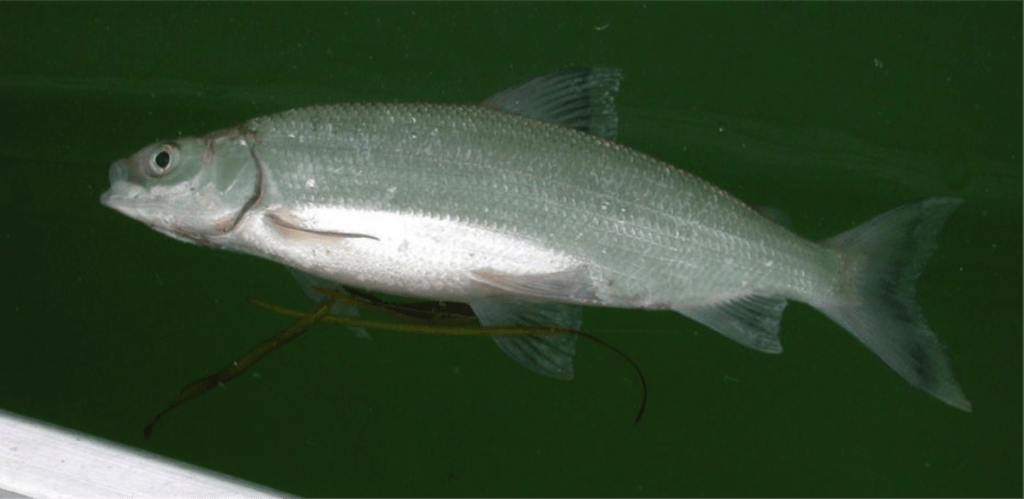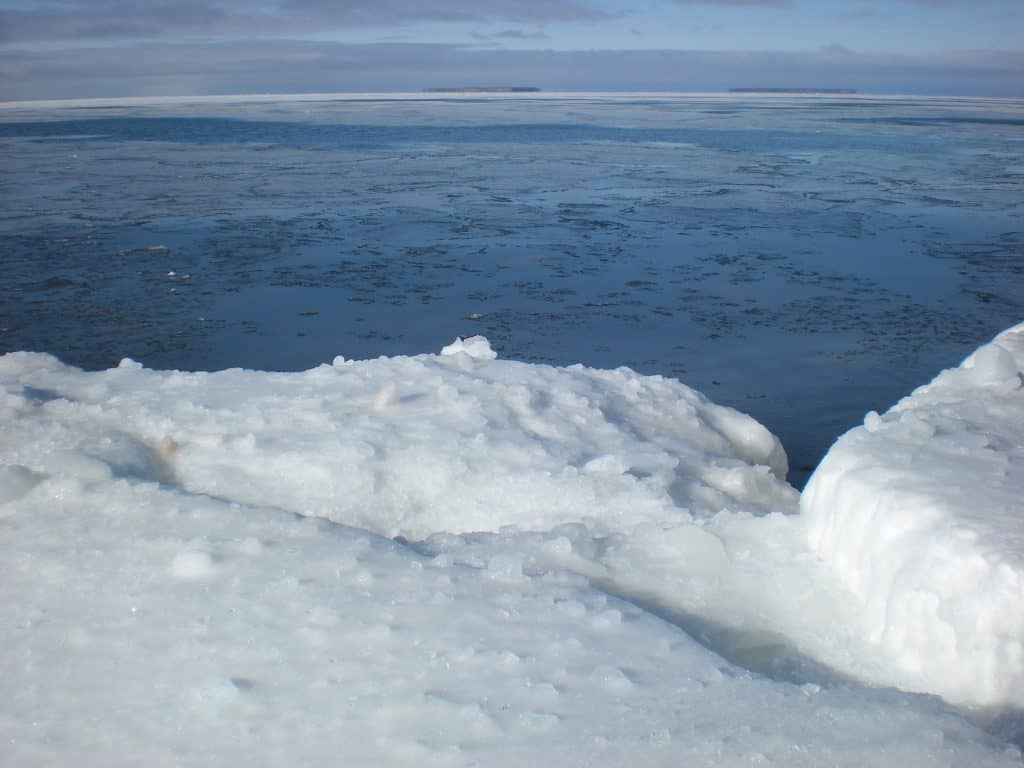
Earth’s warming climate is predicted to have a cascading effect on the Quetico-Superior ecosystem. Climate change is already affecting the trees and lakes on the southern edge of the boreal forest, due to changes in temperature, precipitation, and other factors.
Now, scientists say it could mean that fewer eggs survive of a fish species that holds a special place in the food web.
Cisco, also known as lake herring, need deep, cold waters to survive. They are already threatened by warming waters, with the fish expected to disappear from about 450 of the 620 lakes where it lives in Minnesota in the coming century.
Many of those lakes are also home to popular cold-water game fish like lake trout, which depend on cisco for food. The disappearance of cisco would mean less to eat.
Since at least 2006, lake managers and scientists have documented mass kills of cisco in many Minnesota lakes. Hot spells deplete the oxygen at the bottom of the lake where cisco find cold water, suffocating the fish.

Less ice, fewer fish
Recently, a pilot study by researchers at the University of Vermont has identified another way global warming could disrupt the fish’s survival. The scientists found that indirectly, climate change could negatively affect the success of cisco eggs at maturing to adulthood, as reported by the International Joint Commission.
The investigation was focused on Lake Superior, where cisco have long been understood as important.
Because the big lake is less likely to ice over as the climate gets warmer, it could mean more light reaches cisco eggs. Experiments in the study found that eggs exposed to more light had higher mortality rates after developing into juvenile fish.
Cisco have evolved to lay their eggs late in the fall, where the next generation of fish waits out winter. Spawning most often occurs in shallow water, where light can more easily penetrate the water. With less ice, and less snow, covering the lake, more of the sun’s rays reach the bottom.
The study found that 98 percent of fish died that developed from eggs exposed to more light. Conditions with less light had a mortality right around 80 percent.
One cause might be that the fish’s yolk sac is smaller when exposed to more light in the egg stage, possibly because the egg may have a higher metabolism and consume more of it. This food source is important to the fish after they transform into larvae.
The researchers presented their preliminary findings at the International Association of Great Lakes Research conference in Toronto last year. They stressed that it was a pilot study to determine if further investigation of light levels on fish was warranted.

Melting to nothing
The disappearing ice on Lake Superior is explained in another article from the International Joint Commission. It reports that from “1858 to 2014, lake ice break-up has come 1.6 days earlier per decade. However, this rate has accelerated in recent decades to 2.7 days earlier per decade from 1951-2014, a possible sign of faster changes in climate during recent decades.
A study in 2012 found that between 1973 and 2010, how much of Lake Superior was covered by ice dropped by 79 percent. Based on climate models and current rates of decline in ice cover, scientists expect the lake will no longer freeze over within about 20 years.
Researchers say the lack of ice cover could reach beyond cisco reproduction, including the natural repopulation of wolves on Isle Royale which can only reach the islands via ice bridge.
MORE INFORMATION:
“More Light and Less Ice Cover Could Mean Fewer Cisco in Great Lakes” – https://ijc.org/.
“Great Lakes ice cover decreasing over last 40 years” – https://www.climate.gov

